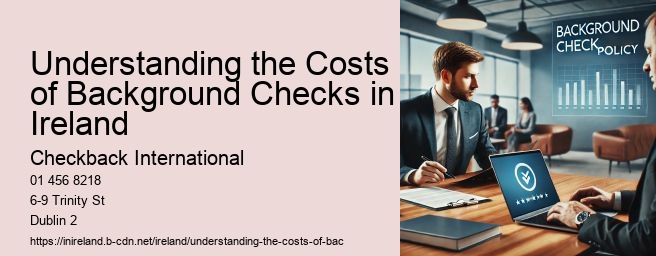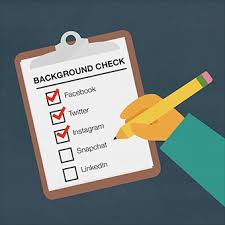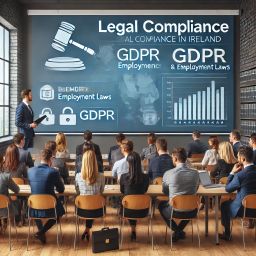

Data protection regulations allow candidates to request copies of their background screening reports.
The vetting process includes employment verification, educational references, and character references from non-family members.
Key factors to consider:
Right to Work VerificationThese laws require obtaining clear, informed consent from candidates before starting background checks, protecting data privacy. Manual Handling Certification Checks The Data Protection Commission (DPC) oversees compliance, and violations can lead to penalties, including fines up to €20 million or 4% of global turnover.
Standard consumer credit checks complete within 24-48 hours, while European Criminal Record Checks (ECRC) take 5-10 working days to finish.
Airside and Security Vetting Requirements
Past failed vetting checks can affect later background checks based on the specific rules and requirements being used. Each review looks at both old screening results and new details submitted during the checking process.
The centralized application system handles different checks while maintaining accuracy and compliance.
The standards allow online and paperless vetting processes, supporting efficient procedures.

These technologies operate on encrypted, secure platforms that protect sensitive personal information. The tools have improved the speed, accuracy, and transparency of background checks in Ireland.
Tools and Technologies Used in Background Screening
Send general questions to info@checkback.ie or reach customer support at support@checkback.ie.


Background check requirements stay the same for both temporary and permanent positions. Temporary workers go through identical screening procedures as permanent employees to meet security standards and comply with regulations.
Are Background Check Requirements Different for Temporary Versus Permanent Employment Positions?
2.Organizations keep secure storage systems with appropriate access controls and data encryption measures.
Other standards include PSA 39:2014 for event security and PSA 55:2016 for locksmiths. Companies that fail to meet these regulations may face penalties and lose their licenses.
Can an Individual Request Copies of Their Own Background Check Results Directly?
The processing time includes verification across multiple databases, including registered judgments, court records, and European inspectorates.

Can You Appeal a Negative Result on a Background Check?
Organizations must store data securely and keep it only for the time needed for its intended purpose.
Can Employment Vetting Reveal Medical History or Health-Related Information?

A background check in Ireland involves reviewing a person's criminal, financial, or personal records to assess their suitability for a role or position.
The duration can vary but typically takes between 1-2 weeks, depending on the type and complexity of the check.
Garda vetting is a specific type of background check required in Ireland for individuals working with children or vulnerable adults, involving checks against police records.
Yes, you must obtain consent from the individual before conducting any background checks in Ireland.
Not for all employees, but certain sectors such as healthcare and education may require comprehensive checks.
It includes checking for any criminal convictions or offences recorded against the individual.
Yes, individuals can request their own background checks in Ireland for personal review or to prepare for employment screenings.
Skipping background checks can lead to hiring unsuitable candidates, which may result in legal and reputational risks.
Yes, police clearance is a general criminal record check, while Garda vetting is specific to roles involving vulnerable groups and includes more detailed investigations.
You can request transcripts or degrees directly from educational institutions or use third-party services that specialize in educational verifications.
Information about spent convictions, certain types of personal data, and other protected characteristics under GDPR is off-limits unless specifically relevant and lawful to access.
International checks may involve additional complexities such as different laws, languages, and longer processing times.
No, background checks do not affect your credit score as they do not involve a credit inquiry that would impact the score.
Best practices include securing data in compliance with GDPR, limiting access to authorized personnel, and ensuring data is stored for only as long as necessary.
It depends on the industry and role, but typically every 2-3 years or when significant changes occur in the individual’s role or responsibility.
While not specific by law, many IT positions require checks due to access to sensitive or proprietary information.
GDPR regulates the processing of personal data, ensuring that background checks are conducted in a lawful, fair, and transparent manner.
Yes, but it must be done lawfully and with the individual’s consent, considering the relevance to the role.
Penalties can include fines, legal actions, and reputational damage, depending on the severity of the non-compliance.
Remote work has increased the importance of thorough background checks, especially for those in positions of trust or handling sensitive data.
Best practices include conducting similar checks as for permanent staff, especially if they have access to sensitive or critical areas.
Ensuring fairness involves following consistent procedures, obtaining consent, and allowing candidates to dispute inaccuracies.
Yes, it’s recommended to tailor background checks based on the specific risks and requirements of each position.
Signs include transparency about services, compliance with legal standards, positive reviews, and strong data protection practices.
Handling involves assessing the relevance to the job, discussing findings with the candidate, and considering legal and ethical implications.